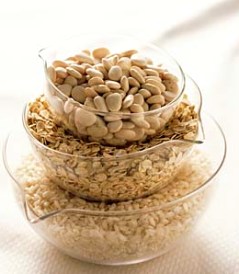While herbalists believe that herbs are often cheaper, healthier and better compared with conventional medicines, medical practitioners do not recommend herbs for pregnant women because of the unknown risks.
Risks of using natural herbs during pregnancy:
You are advised to consult an experienced and trained herbalist if you want to take herbs during pregnancy because some of the herbal products contain toxic agents that are contraindicated during pregnancy.
In addition, the FDA suggests that pregnant women should not take any herbal products without talking to their doctor or midwife.
While tests on the effects of herbs on pregnant women are ongoing, herbal products consist of components that can lead to miscarriage signs, uterine contractions, and injury to your fetus or premature birth.
Herbs to avoid during pregnancy:
- Black cohosh: Used orally when you are not at term.
- Blue cohosh: A uterine stimulant which can induce labor.
- Dong quai: A uterine stimulant which has a relaxant effect.
- Ephedra: Harmful when used orally.
- Goldendeal: Can cross the placenta and is dangerous to your baby.
- Pennyroyal: Harmful when used orally or topically.
- Passion flower: Harmful when used orally.
- Pay D’ Arco: Contra-indicated for pregnant women, it is harmful when used orally and in large doses.
- Saw palmetto: Has an adverse hormonal effect.
- Yohimbe: Harmful when used orally.
Herbs that can be used in pregnancy:
Ginger root: Helps in relieving nausea and vomiting.
Oats and oat straw: Has wonderful magnesium and calcium contents and helps in relieving anxiety, irritated skin and restlessness.
Peppermint leaf: Helps relieve morning sickness [morning sickness remedies] nausea and flatulence.
Red raspberry leaf: Has high contents of iron; helps in toning the uterus, increasing the production of milk, relieving labor pains, and decreasing nausea. It can also reduce complications and the usage of interventions at the time of birth.
Because there is controversy about whether this herb can be used throughout the pregnancy period or just in the second and third trimester, most practitioners recommend this herb only be used after the first trimester.
Consult your practitioner about the use of any natural supplements during pregnancy.







Great information for pregnant women.
I did find it interesting in some research that I did that Rosemary, could also be harmful to women if taken in large doses.
For example, using Rosemary in your Spaghetti sauce is perfectly ok, but if you were to take large concentrated doses of Rosemary it can be a menstrual flow stimulant.
Most people don’t really take Rosemary in large doses but the point is that even herbs thought to be safe can be potentially unhealthy to pregant women in large medicinal doses. As mentioned in the article, be sure to check with your doctor before using too many natural substances.
Harness the healing power of natural herbs to treat common health disorders and to live a healthier life.Herbal teas not only sooth the soul but many teas also exhibit powerful medicinal and health benefits for the body.Harness the healing power of natural herbs to treat common health disorders and to live a healthier life.
Discover herbal supplements that can help you live a longer, healthier and more youthful existence.Find out how herbal antioxidants can cleanse your body of harmful chemicals and substances.Harness the healing power of natural herbs to treat common health disorders and to live a healthier life.